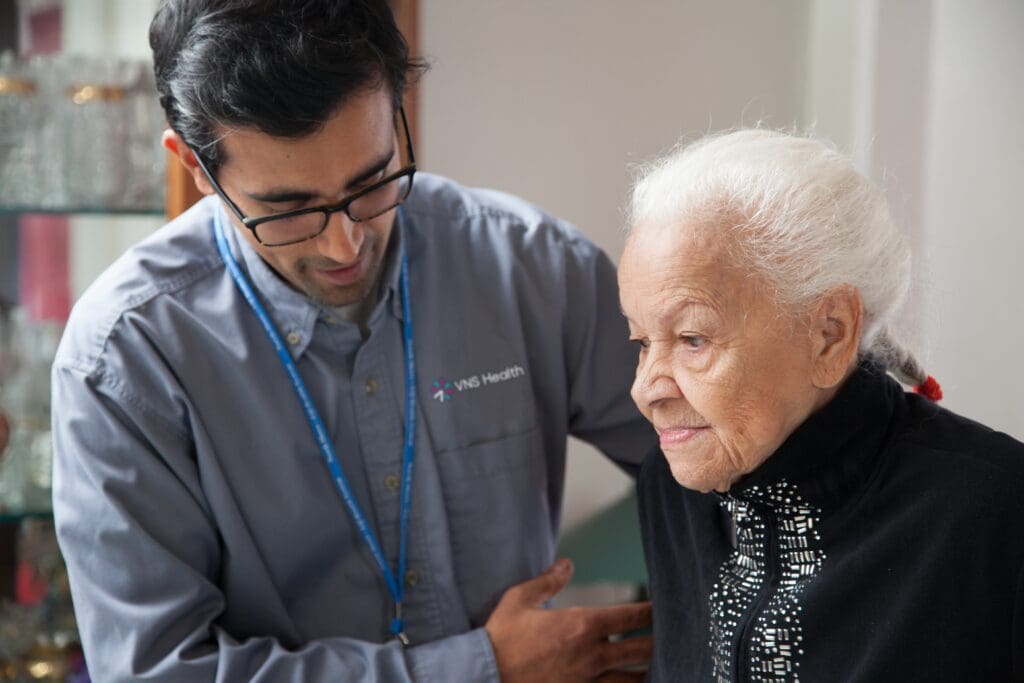Exactly How to Give Meaningful and Personalized Dementia Treatment
The stipulation of personalized and significant dementia care requires a nuanced understanding of each person's one-of-a-kind background and preferences. Care strategies have to be customized to engage the person in methods that resonate with their previous experiences, therefore fostering emotional connections and enhancing general well-being. Additionally, establishing trust via compassionate and regular interactions is important for developing a secure and supportive setting. As we check out the ins and outs of efficient interaction and the vital role of family members involvement, it ends up being clear that the trip towards customized care challenges both holds and profound rewards.
Recognizing Mental Deterioration Uniqueness

Treatment providers have to analyze cognitive capabilities, emotional states, and behavioral patterns to create personalized treatment strategies. This may consist of adapting communication styles, using acquainted regimens, and using meaningful activities that reverberate with the person's previous experiences. For instance, involving an individual with an interest for music via music tasks may stimulate positive memories and enhance psychological wellness.
In addition, comprehending individuality promotes a caring technique that values the dignity and autonomy of those dealing with dementia. It encourages caretakers to listen actively, observe behavioral signs, and remain adaptable in their caregiving approaches (memory care facility charlotte). By prioritizing individuality, caretakers can not just boost the lifestyle for those with dementia however also develop an extra extensive understanding of their one-of-a-kind point of views, inevitably resulting in extra empathetic and effective treatment
Structure Depend On and Relationship
Developing depend on and rapport is basic in mental deterioration treatment, as it produces a secure and supportive environment for individuals affected by the condition. Building these links needs constant, thoughtful interactions that focus on the demands and sensations of the person. Caregivers must approach communications with empathy, recognizing the unique obstacles dealt with by those with dementia, including amnesia, complication, and psychological distress.
Effective interaction is important in this procedure. Caregivers need to use clear, basic language and non-verbal signs to communicate understanding and assistance. Active listening demonstrates regard and validation, enabling individuals to express themselves without concern of judgment. Additionally, maintaining a calm demeanor can help minimize anxiety, fostering a complacency.
Experience with daily tasks and caregivers advertises a sense of security, allowing people to feel even more at convenience. By doing so, caregivers enhance the person's identification, promoting dignity and regard, eventually leading to stronger, much more significant connections in the context of dementia treatment.
Tailoring Tasks and Involvement
Engaging individuals with mental deterioration via tailored tasks can considerably improve their top quality of life and foster a deeper link in between caregivers and those in their care. Personalization is necessary, as it acknowledges the special backgrounds, rate of interests, and capacities of each person. Tasks should be developed to boost cognitive functions, promote physical motion, and motivate social interaction, all while staying satisfying and satisfying.
To customize activities properly, it is critical to assess the individual's choices and cognitive capacities. As an example, some might find pleasure in horticulture, while others could appreciate songs or art. Straightforward, acquainted tasks can stimulate positive memories and provide a feeling of accomplishment. Additionally, including elements of routine can supply convenience and security, permitting individuals to engage with tasks much more confidently.
Caregivers can enhance involvement by taking part alongside the individuals, cultivating a helpful and interactive atmosphere. It is also important to continue to be adaptive and versatile, changing activities as needed based upon the individual's energy levels and state of mind. Ultimately, significant interaction via tailored activities not just boosts people with dementia but additionally enhances the caregiver connection, advertising common satisfaction and understanding.
Efficient Interaction Methods
Reliable communication is vital in mental deterioration care, as it promotes a feeling of connection and understanding between individuals and caretakers experiencing cognitive decline. Using effective communication strategies can substantially boost the top quality of communications and decrease aggravation for both events.
First of all, utilizing easy, clear language is important. Short sentences and familiar words aid people comprehend and respond better. Additionally, keeping a tranquility and favorable tone can produce a comforting setting, which is important for individuals that might really feel baffled or nervous.
Non-verbal communication plays a substantial duty as well. Caregivers need to pay interest to body language, face expressions, and motions, as these signs can usually convey even more than words - memory care facilities charlotte. Establishing eye call and using gentle touch can additionally share and strengthen links empathy
Active listening is one more essential component. Caregivers must listen, allowing individuals to reveal themselves completely, also if their speech is unclear or fragmented. This lionizes and urges more open interaction.
Finally, validating experiences and visit homepage sensations is important. Recognizing feelings, no matter their basis in fact, can give convenience and strengthen the caregiver-individual connection, advertising a more helpful atmosphere.
Sustaining Family Participation
Family members participation plays a significant role in the total treatment and support of people with dementia. Involving household members produces a joint atmosphere that improves the top quality of care, cultivates psychological connections, and guarantees that the distinct demands of the person are satisfied. Family members often have indispensable understandings into the person's history, choices, and actions, which can be essential in creating individualized treatment techniques.

Additionally, family members can be urged to article source join everyday treatment activities, such as participating in purposeful discussions or aiding with familiar regimens. This not just assists sustain the individual's sense of identification but additionally reinforces familial bonds. Inevitably, by fostering an inclusive strategy that values family members contributions, care additional reading suppliers can improve the total experience for both people with dementia and their enjoyed ones.
Final Thought
In final thought, supplying meaningful and individualized dementia treatment necessitates a thorough understanding of each individual's distinct background and preferences. Establishing trust and relationship with compassionate communications is essential for producing a safe environment. Tailoring tasks to resonate with personal rate of interests enhances psychological wellness and promotes self-respect. Effective communication methods further sustain this procedure, while proactively entailing family participants improves the caregiving experience and fosters deeper links. Collectively, these methods contribute to improved high quality of life for individuals with mental deterioration.
The stipulation of personalized and purposeful mental deterioration care calls for a nuanced understanding of each person's distinct background and preferences. By doing so, caretakers enhance the individual's identity, advertising dignity and regard, eventually leading to stronger, extra purposeful partnerships in the context of dementia treatment.
Involving people with mental deterioration through customized activities can dramatically enhance their quality of life and foster a deeper link in between caregivers and those in their treatment.Family members involvement plays a significant function in the general care and assistance of individuals with dementia. Inevitably, by fostering an inclusive approach that values family contributions, care carriers can improve the overall experience for both individuals with mental deterioration and their loved ones.